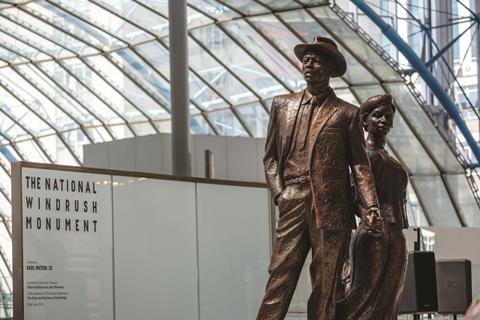Survivors of the Windrush immigration scandal and campaigners fighting to secure justice on their behalf gathered in the House of Lords this week for what Baroness Benjamin (the actress Floella Benjamin) described as a ‘new chapter’ in the saga: the Windrush Justice Inquiry Report.

It has been seven years since the government under Theresa May apologised for the treatment of citizens of the ‘Windrush generation’ who faced unacceptable hardship proving their lawful immigration status in subsequent decades.
A reminder: people from the Caribbean and Commonwealth countries were invited to help rebuild Britain following the second world war. They were granted the right to reside and work here. Foreign nationals ‘ordinarily resident’ in the UK when the Immigration Act 1971 came into force were deemed to have ‘settled status’ and given indefinite leave to remain. However, many citizens were not issued with documents confirming their status and the Home Office did not keep a register.
The government established a compensation scheme; 22 June became National Windrush Day to celebrate the community’s extraordinary contribution to British society. A national Windrush monument, designed by renowned Jamaican artist Basil Watson, was unveiled at London’s Waterloo Station in 2022.
However, Windrush commissioner Reverend Clive Foster told this week’s event that the Home Office scandal was ‘sadly not in the rear-view mirror’. People were still navigating a complex compensation process and awareness of the entitlement to compensation and status was fading.
Highlighting the importance of the People’s Inquiry, Foster said justice cannot come from above but must be co-created with the people who have been affected by the scandal.
The event heard from victims too. One victim who was wrongly told they did not have indefinite leave to remain called for Home Office staff to be held to the same standards as police. ‘If they are held accountable, they will make better decisions,’ they said.
The Windrush Justice Inquiry Report sets out a blueprint for a ‘People’s Inquiry’ dedicated to investigating the ‘ongoing failings’ of the Windrush compensation scheme, restore justice for those directly affected by the scandal, rebuild trust in the system and, through its findings, urge the government to order a statutory inquiry.
The report’s author, barrister Priscellia Robinson, outlined seven key questions that the inquiry will seek to answer. These include:
- Did the Windrush scandal contribute to significant human rights violations?
- Does the compensation scheme provide adequate restitution in accordance with international human rights law?
- Do we need an independent Cabinet-led compensation scheme that addresses broader issues connected to the Windrush scandal?
- Was the Legal and Ethical Administrative Protocol of governmental agencies breached under domestic law?
- Are government agencies adequately equipped to present the information they need to effectively interface with the community?
- Do we need a Windrush Bill that addresses historical, current and future immigration disenfranchisement?
Robinson said the community-driven, trauma-informed inquiry will determine truth, accountability and the restoration of dignity. ‘At its core, it seeks to rebuild trust that has been deeply eroded.’
A symposium will be held in January. Windrush Justice Clinic’s Pamela Robotham said the plan is for activists, survivors, lawyers and researchers to explore what a trauma-led inquiry should look like.
In closing remarks, Benjamin pointed out that trauma passes down. ‘Children are feeling angry and frustrated. That’s why we need to have change. I’m a woman of hope. I hope today will bring a moment of truth, optimism and clarity, not led by institutions but by people who have endured the greatest harm… I want us to proceed with dignity and purpose. May the force be with us as we continue to strive to right the wrongs.’
Announcing a major overhaul of the claims process last month, home secretary Shabana Mahmood described the scandal as a ‘shameful stain on our country’. Mahmood also pledged to leave no stone unturned until everyone receives the justice they deserve.
Two stones yet to be turned? Legal aid for victims and a statutory inquiry both spring to mind.
This article is now closed for comment.































2 Readers' comments